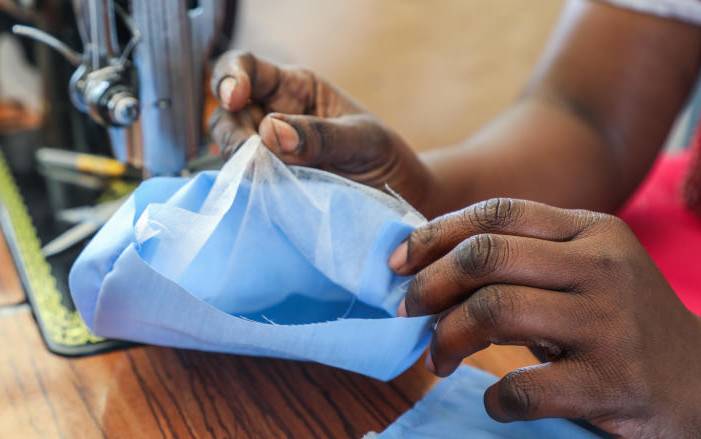A paradigm shift on the mindset of the youth towards Technical and Vocational Education and Training (TVET) is becoming more and more apparent. This was unearthed early this month when the Ministry of Education unveiled KCSE candidates picked for various courses in pursuit of higher education.
Among the 689,000 candidates who sat for KCSE, a total of 125,000 have been placed for degree programs but 2,632 of them opted to pursue TVET. This is a significant increase of more than 1,000 from last year’s figures, a sign that the tide is moving away from white-collar dominated mentalities, albeit slow but sure.
The notions of wearing suits and sitting in offices to gain social standing in society is losing momentum among the young generation. Now, it appears that earning an income from meagre wages at the end of the day is better than waiting around for that “white-collar job” vacancy years upon graduation.
Therefore, the realisation among the youth on developing their skills sets to earn decent incomes and livelihoods is here. Whether through informal jobs or working in the Jua Kali sector, the youth are looking for a meaningful way to be engaged and it is something that I am proud to be associated with.
Of importance to me has been the enrolment of more females in TVET which will go a long way in gender mainstreaming of the education system. Being a young lady in
STEM has not always been easy but the wave is here for more females to break down the barriers that have prohibited them from becoming technical. This is a key milestone that Kenya ought to celebrate, as it takes up a stand across Sub-Saharan Africa and on the global arena. It is a stepping stone towards inclusivity and embedding diversity.
Achieving 2030 goals
Through TVET, the nation is on course in ensuring the 2030 Agenda for Sustainable Development goal number four is achieved, and specifically target 4.4 in increasing the enrolment of young boys and girls in tertiary education.
The 2020 placement statistics as recently unveiled by the Ministry of Education showcase the young generation opting to enrol in TVET, despite having qualified for university. This is the revolution that we can encourage all the youth to actively participate in. More so, among the females who maybe passionate about championing technical courses but society has continued to dictate “softer” paths for them and created an environment to entrench a male-dominated culture around technical training and education.
I vividly recall in my third year of studying aeronautical engineering abroad, I came home to pursue an internship at one of our local airlines but no sooner had I set foot in the organisation than I left minutes later, scarred to life that everyone was expecting the intern coming from abroad to be male.
I remember somebody asking out loud, “surely what is this young lady doing at such a prestigious airline?” Ladies and gentlemen, how many more young girls have similarly fallen off the bandwagon? We owe it to ourselves to mainstream all courses for one to pursue freely, without antagonising our youth using the gender biases that have existed since our forefathers.
It is a new dawn in Kenya and leveraging our huge youth demographics’ skills is one of the key strategies that we can adopt. That is if we are being realistic about achieving our national development goals such as Vision 2030 that aims at transforming Kenya into an industrialising economy.
The youth bulge is a major problem in Kenya and this has been characterised by the societal divide between the educated and “uneducated”. There are stigmatised youth who did not attain the university cut off marks but have now morphed into the artisans and technicians who are never available when we try to call upon them to our homes because they are scarce.
Pause and think of the last time when your local fundi or plumber was readily available when you had that pressing need to fix a pipe or wiring in your house? They, on the other hand, could not relate to the word “unemployment” (pre-Covid-19 period) as they continued to pursue their blue-collar and casual jobs that most of us look down upon.
This allowed them to put food on their table and have daily bread despite the harsh economic times we have been through. One can urge them to re-skill and up-skill while continuously earning a decent income to sustain their lives. Most important is to amass skills with each level of learning and be well equipped with the requisites needed by the industry.
The market absorption rate for TVET learners is an indication that our labour market requirements are pegged on having practical skills. If your university degree still does not bring food to your table, it becomes a question on the return of the investment in your education.
Most youth go to school to secure decent jobs, become entrepreneurs and get exposed to opportunities immediately after graduation.
It is high time we embrace TVET and support the youth to enrol in huge numbers this year. When you visit the counties and grassroots, it is quite depressing to watch the looming despair among youth yet we have the youth polytechnics which can open up channels for productivity. If encouraged, they can enrol despite the low grades they may have attained, and start a technical course at artisan level; gain a few skills to allow them to do some casual jobs and earn some wages as they continue to the next level of craft. They can ppt to pursue Diploma or Degree later on, which can be done at one's own pace according to the recently adopted CBET Curriculum.
Collectively, we can urge the youth to earn livelihoods from their skills and climb the ladder patiently. Through TVET, much can be achieved and we can collectively eradicate poverty and pursue socio-economic development.
Mwende Lynette is a TVET Policy Enthusiast and Founder of Ujana Afrika
 The Standard Group Plc is a multi-media organization with investments in media platforms spanning newspaper print
operations, television, radio broadcasting, digital and online services. The Standard Group is recognized as a
leading multi-media house in Kenya with a key influence in matters of national and international interest.
The Standard Group Plc is a multi-media organization with investments in media platforms spanning newspaper print
operations, television, radio broadcasting, digital and online services. The Standard Group is recognized as a
leading multi-media house in Kenya with a key influence in matters of national and international interest.











